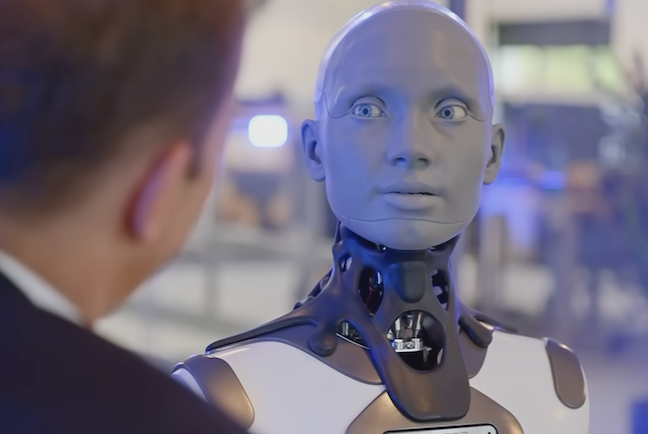From Facebook’s data scandal to AI-driven surveillance, technology is reshaping democracy by quietly trading freedom for convenience, writes Paul Budde.
Cambridge Analytica to AI control
The scandal of Cambridge Analytica in 2018, where the data of 87 million Facebook users was harvested and sold to Republican campaigns, should have been a turning point. Instead, it normalised the idea that surveillance works — and should be expanded.
In the years since, the spread of artificial intelligence (AI) has transformed surveillance from a matter of watching into a means of control. What began with cameras and databases now extends into generative AI, capable of creating persuasive content and steering behaviour with alarming precision.
Authoritarianism cloaked in convenience
This new reality is more subtle than classical fascism. As journalist George Packer has argued, it is unlike the 1930s model of mass rallies and overt propaganda.
Today’s authoritarianism is wrapped in convenience: tapping a phone to pay, unlocking it with a glance, receiving personalised feeds and updates. Citizens surrender their data willingly, believing it improves their lives, even as it builds the infrastructure for manipulation.
Global drift to illiberal democracy
The risks are already visible. In China, surveillance is integrated into everyday life through scoring systems and biometric tracking. In democracies like Hungary and Turkey, digital tools have been used to weaken courts, silence opposition and consolidate power.
In the United States, the drift toward illiberal democracy is accelerating: racial profiling, the militarisation of policing and the erosion of institutions all show how easily efficiency tools become instruments of control. Political scientists call this “competitive authoritarianism”; Packer describes it as ‘zombie democracy’, where institutions stagger on, hollowed out, giving the illusion of vitality while serving entrenched power.
Uberveillance as the new normal
The architecture of surveillance is everywhere. Phones log location dozens of times a day, fitness trackers share health data and social media platforms record every pause in scrolling. As Michel Foucault’s panopticon and Gilles Deleuze’s “societies of control” anticipated, we now regulate ourselves because we know we are being watched.
Scholars Katina Michael and MG Michael call this state “uberveillance”: the total integration of monitoring across networks, devices and even bodies. With nearly 50 billion connected devices expected worldwide by 2025, we are each carrying multiple surveillance nodes at all times.
AI supercharges this. Algorithms can already process billions of data points in real time, assign risk scores, and flag dissent. Predictive policing and algorithmic sentencing have shown racial and socio-economic bias, entrenching injustice while claiming neutrality. U.S. Immigration and Customs Enforcement (I.C.E.) has used such systems to identify individuals for deportation.
History’s warning signs
The paradox is that citizens often welcome these systems. They bring convenience, a sense of security and even entertainment.
But history warns us of the dangers. In Weimar Germany, instability made people willing to trade liberty for bread and order. Today, rapid technological and social change creates similar conditions of alienation and distrust.
Alvin Toffler described this as ‘too much change, too quickly’, while historian Peter Turchin warns of ‘popular immiseration’ as a precursor to crisis. In such contexts, authoritarian promises of order become dangerously attractive.
It is crucial, however, not to view the 21st-century slide as a simple replay of past fascism. Authoritarianism today is quieter, cloaked in democratic forms while hollowing them out from within. Elections continue, courts exist, newspapers are published — but their independence and integrity erode steadily.
As Packer notes, this form of authoritarianism differs profoundly from its predecessors, making it harder to recognise and resist until it is too late.
Carlota Perez and the hope of a golden age
And yet, there is another path. Economist Carlota Perez argues that each technological revolution carries the potential for a golden age, provided institutions adapt to steer innovation toward social goals. In her analysis, the digital and green revolutions could underpin such a transformation.
But it will not happen automatically. Europe is best placed to lead, she suggests, due to its regulatory traditions and welfare systems, though the transition will take decades. Most importantly, Perez insists that a true golden age must be global: the Global South must be included, or inequality and instability will undermine the system everywhere.
Choice, not inevitability
The choice is stark. Technologies of surveillance can continue to deepen division, fear and authoritarian control, or they can be redirected toward sustainability, inclusion and prosperity. People often trade freedom for convenience and security, but convenience must not become the path through which liberty is invisibly lost. Authoritarianism feels normal until it suddenly doesn’t.
The trajectory is not inevitable: it is political. Guardrails – privacy laws, independent oversight, civic engagement – are essential. The future depends on whether societies settle for zombie democracy or seize the opportunity Perez describes. The very tools that enable authoritarian control could, if handled with foresight and courage, become the foundation of a more inclusive and sustainable future.
Paul Budde is an Independent Australia columnist and managing director of Paul Budde Consulting, an independent telecommunications research and consultancy organisation. You can follow Paul on Twitter @PaulBudde.
 This work is licensed under a Creative Commons Attribution-NonCommercial-NoDerivs 3.0 Australia License
This work is licensed under a Creative Commons Attribution-NonCommercial-NoDerivs 3.0 Australia License
Support independent journalism Subscribe to IA.

Related Articles
- AI could shatter Australia's labour market
- Artists say AI scraping without permission isn't innovation, it's exploitation
- AI’s exponential rise: Growth, power and looming risks
- We have a plague of Airbnb landlords
- Air masturbator Geoff Shaw and abortion














